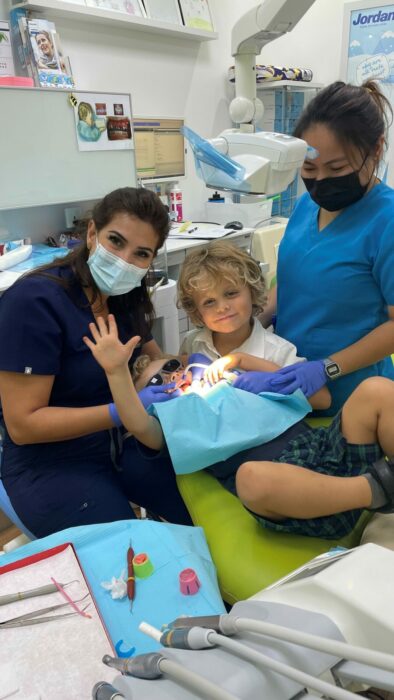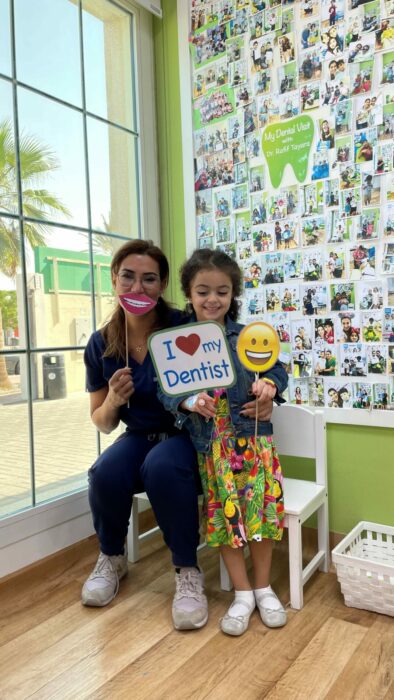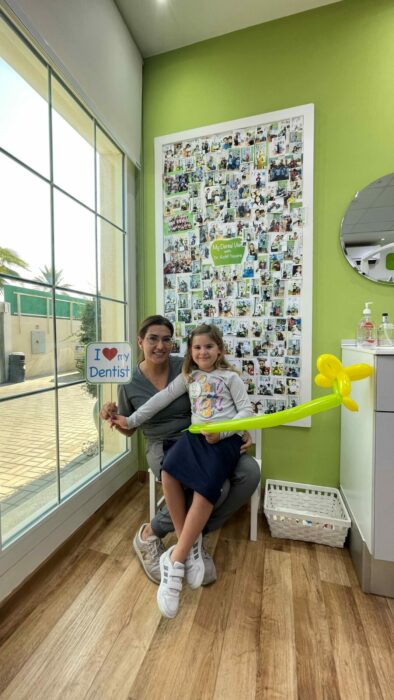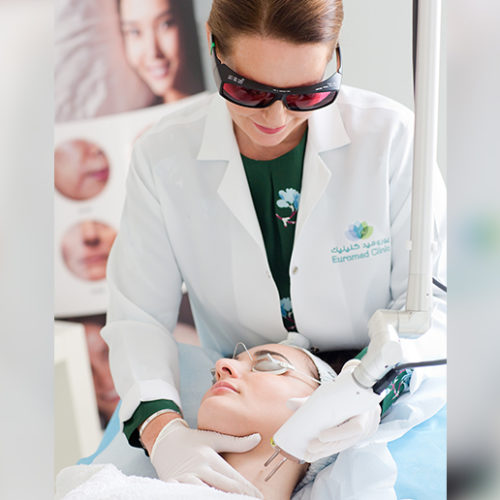The importance of oral health
Veronica Martin caught up with Dr. Rafif Tayara, Pedriatic Dentist & Oral Health Ambassador at Dr. Michael’s Children Dental Centre in Dubai, to discuss oral health for pregnant women babies & children, the myths & facts about pacifiers and the correct way to do tooth brushing

How important is oral health for pregnant women, babies and children?
If you are planning to conceive, an oral health check should be on your check-list before you start. Why?
Dental/oral disease can affect a developing baby. Research has found a link between gum disease in pregnant women and premature birth with low birth weight.
Babies who are born prematurely may risk a range of health conditions including cerebral palsy and problems with eyesight and hearing. Estimates suggest that up to 18 out of every 100 premature births may be triggered by gum disease, which is a chronic infection of the gums. Appropriate dental treatment for the expectant mother may reduce the risk of premature birth.
Nearly 60 to 75% of pregnant women have gingivitis, an early stage of periodontal disease that occurs when the gums become red and swollen from inflammation that may be aggravated by changing hormones during pregnancy. If gingivitis is not treated, the bone that supports the teeth can be lost, and the gums can become infected. Teeth with little bone support can become loose and may eventually have to be extracted.
One way to prevent cavities in young children is to improve pregnant women’s oral health.
Caries are a bacterial infection transmitted from mothers to their newborns, so taking care of your oral health as a mum predicts also a healthy smile for your child.

As the rate of cavities in children has had a huge rise in the UAE, what can be done about it?
+ Taking your child to the pediatric dentist as soon as the first tooth shows up, or at his first birthday is the best way to have a healthy start and a positive relationship for your child with his mouth and smile.
+ Brushing your baby’s teeth and gums with a baby toothbrush helps establishing a healthy daily routine.
+ Establishing a healthy diet, with minimum carbs, no juice and as less processed food as possible helps keeping cavities away, and promotes a great jaw development.
What are the myths and facts about pacifiers? Why do children suck their thumbs and what parents can do about it?
Sucking is perfectly normal for infants: many stop by age two. Prolonged sucking on a thumb or a pacifier can create crooked teeth and bite problems, and abnormal development of the face muscles and tongue. Thumb sucking is, of course a harder habit to quit as it’s easier to throw a pacifier. If the habit continues beyond age 3, we need to start looking for a solution.
Pediatric dentists offer a wide range of options, from psychological behavior management techniques to actual technical intra- oral devices which allows the child to get rid of habit in only a couple of weeks. That’s why it is important to have regular check ups for your child every 6 months.

What are the main causes of baby bottle syndrome and at what age should a baby no longer have a bottle?
Putting your baby to sleep with a bottle of milk in his mouth might cause cavities in very young babies, as milk and especially formula contains sugar; especially if they already have teeth early.
We recommend weaning from the night bottle at 13 months. Only water should be allowed at night.
As many children need braces Invisalign, how early should they start using them and for how long?
Malocclusions or bite problems are present in the majority of children in our present time. Early detection of bite issues, an incorrect position of the tongue, a small jaw can all be seen when your child sees his pediatric dentist, as early as 3 years of age. Clear aligners (Invisalign First) for children is a great option if such bite issues are detected and early treatment at 6 years of age can be started, depending on the case of your child.

Even though tooth brushing might seem simple, many parents and children don’t know how to brush their teeth properly, what’s the correct way to do it and what kind of toothpaste and toothbrushes are the most adequate to use?
Brushing your teeth takes a long learning curve. In general, we do not rely on our children to brush their own teeth independently until they reach the age of 9-10. Until then, supervision is needed. For a baby and a toddler, we need to brush their teeth, while taking a position that allows us to reach all teeth and see what we are brushing.
As the child gains independency, we can let him brush and then have our turn into brushing his teeth and “checking”, as they understand the concept of taking turns…I usually show the parent at the clinic how to brush their child’s teeth during their first dental visit and on regular checkups.
A toothbrush for a child needs to have a small head, soft bristles and the child needs to like it and chose it.
A toothpaste for a child needs to be SLS free (sodium lauryl sulfate), and needs to contain hydro-apatite or Fluoride.












Comments